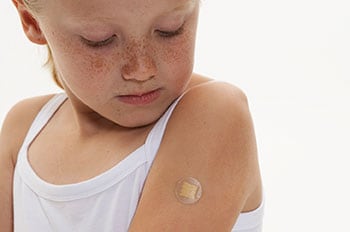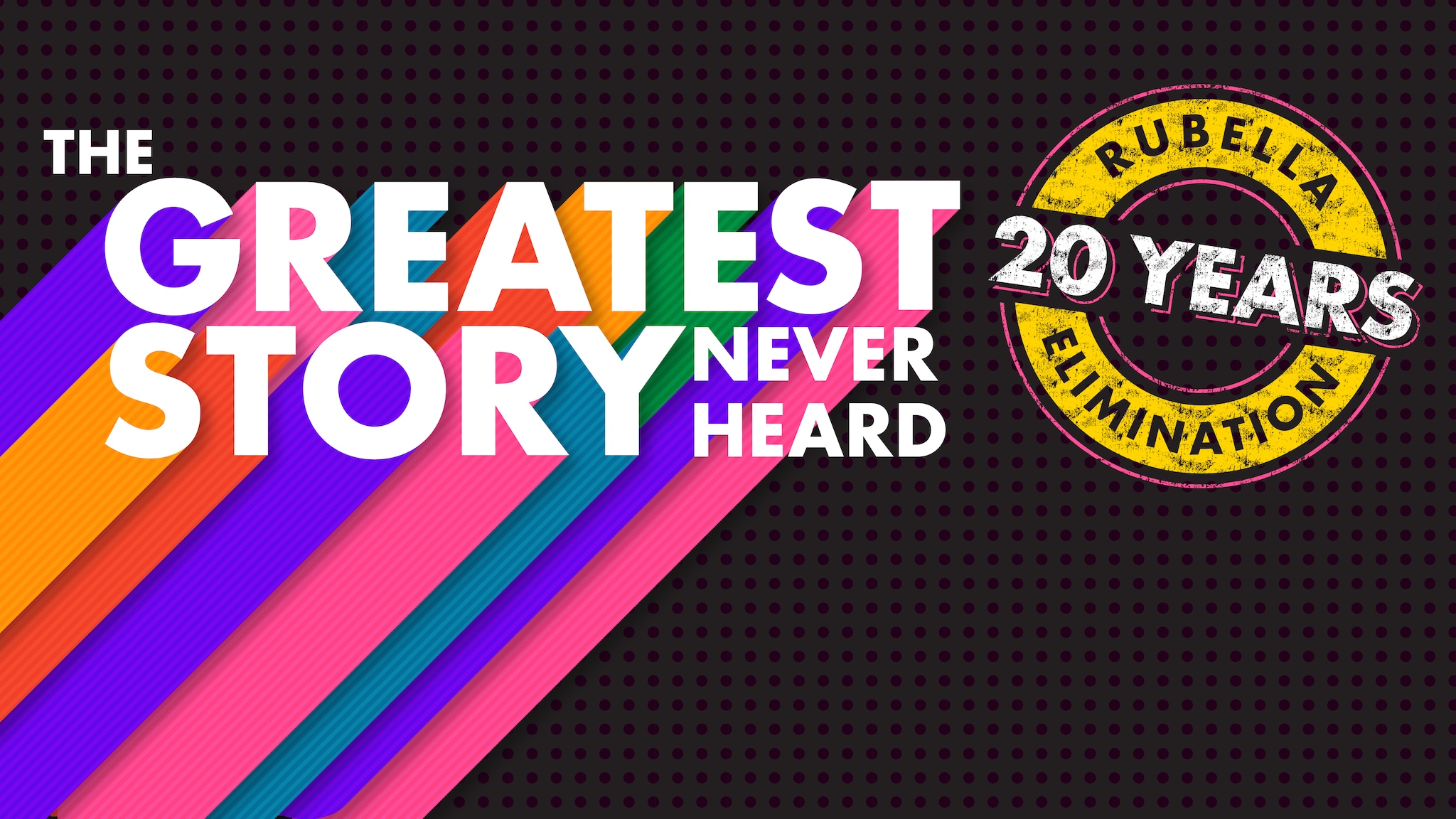Key points
- Rubella spreads when an infected person coughs or sneezes and usually causes a rash that first appears on the face.
- Rubella is very dangerous during pregnancy and for developing babies.
- The best protection against rubella is measles, mumps, and rubella (MMR) vaccine.

What it is
Rubella is a contagious disease caused by a virus. Rubella is sometimes called “German measles,” but it is caused by a different virus than measles.
The disease is no longer endemic (constantly present) in the United States; but rubella is common in other parts of the world. It can still be brought into the United States by people who get infected in other countries.
Signs and symptoms
Rubella is usually mild, with few noticeable symptoms. For children who do have symptoms, a red rash appearing on the face is typically the first sign.
Most adults who get rubella usually have a mild illness with:
- Low-grade fever
- Sore throat
- A rash that starts on the face and spreads to the rest of the body
Up to 70% of women may experience arthritis as a rubella complication; this is rare in children and men.
Who is at risk
Anyone who is not vaccinated against rubella is at risk of getting rubella.
Rubella is very dangerous during pregnancy and for developing babies. If you are pregnant and infected with rubella, you can pass rubella to your developing baby. When a baby is born with rubella, this is called congenital rubella syndrome (CRS).
Rubella can cause a miscarriage or serious birth defects in a developing baby. CRS can affect almost everything in the developing baby’s body.
How it spreads
Alert others if you are infected with rubella!
Rubella spreads when an infected person coughs or sneezes. People can get the disease in other countries and bring it home.
A person with rubella may spread the disease to others up to 1 week before the rash appears; they can remain contagious up to 7 days after. However, 25% to 50% of people with rubella do not develop any symptoms but they can still spread it to others.
If you are pregnant and infected with rubella, you can pass it to your developing baby which cause serious harm.
Prevention
Protect your child with vaccination. Rubella can be prevented with the MMR vaccine. This protects against three diseases: measles, mumps, and rubella. CDC recommends that children get 2 doses of MMR vaccine to protect against rubella. Teens and adults should also be up to date on MMR vaccinations.
MMR vaccine is very safe and effective. One dose of the MMR vaccine is about 97% effective at preventing rubella.
Global rubella
Rubella is no longer endemic (constantly present) in the United States. However, rubella remains a problem in other parts of the world. It can still be brought into the United States by people who get infected in other countries.
Treatment and recovery
There is no specific medicine to treat rubella or make the disease go away faster. In many cases, symptoms are mild. For others, mild symptoms can be managed with bed rest and medicines for fever, such as acetaminophen.
If you are concerned about your symptoms or your child's symptoms, contact your doctor.

